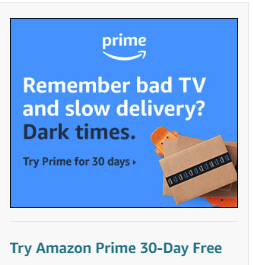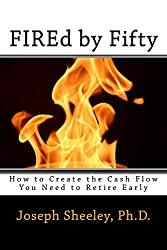
Photo by RODNAE Productions on Pexels.com
" data-orig-size="1880,1253" data-image-title="handing out of documents" data-orig-file="https://smallivy.files.wordpress.com/2022/10/pexels-photo-7821684.jpeg" data-image-description="" data-image-meta="{"aperture":"0","credit":"","camera":"","caption":"","created_timestamp":"0","copyright":"","focal_length":"0","iso":"0","shutter_speed":"0","title":"","orientation":"0"}" data-medium-file="https://smallivy.files.wordpress.com/2022/10/pexels-photo-7821684.jpeg?w=300" data-permalink="https://smallivy.com/2022/10/02/adult-your-finances-when-you-need-insurance/pexels-photo-7821684/" alt="" class="wp-image-22171" data-large-file="https://smallivy.files.wordpress.com/2022/10/pexels-photo-7821684.jpeg?w=723" />Photo by RODNAE Productions on Pexels.comThis is the third post in this series on Adulting your Finances where we cover the basics you need to know when you step out the door of Mom and Dad’s home and start living on your own (or, maybe just start living independently and paying your way while staying at the home your grew up in). Last time we covered the emergency funds. (To start from the beginning, go here..) Today we’ll talk about insurance: what it is, when you need it, and when you don’t.
Hey – if you like The Small Investor, help keep it going. Buy a copy of the SmallIvy Book of Investing: Book1: Investing to Grow Wealthy or just click on one of the product links below, then browse and buy something you need from Amazon’s huge collection. The Small Investor will make a small commission each time you buy a product through one of our links.

What and why is insurance?
You’re probably familiar with things like car and home insurance, but what exactly is insurance and why would you buy it? Insurance is when people pool their money together to pay for a big expense that could happen (but is unlikely to happen) to one or more of them that they could not afford but would need to pay for if it did happen. Let’s say you buy a home for $300,000 and then there is a fire that destroys it. You still need a home, but you don’t just have $300,000 for another one or to rebuild the one you lost. If you had a mortgage, the bank will still want their money for the home even though you don’t have the home anymore and probably don’t want to keep paying a mortgage on a home you don’t have. You therefore buy insurance that will cover the cost of the home if a fire were to occur.
To see how insurance works, let’s say that the chance of a fire ocurring and wiping out your home is 1 in 10,000 in any given year. On average, the home would burn down once every 10,000 years. If you therefore saved $300,000/10,000 = $30 per year, you would have the money to replace the home when it burned down. But, of course, what if it burned down in year 2 instead of year 10,000 when you had saved up the money?
To cover this risk, instead of you saving your money alone, you get a million other people to also put away money in a big pot based on the value of their homes and likelihood of it burning down in any given year. Out of a million homes, 100 should burn down each year. Because only 100 burn down but a million people are putting in money each year, there is enough in the pot to pay for the homes that do burn down that year. If fewer burn down in a given year, the money builds up in the pot to cover the years when more do. You might also have everyone add a little extra to be sure there is enough money to cover everyone should there be a bad year before enough money builds up.

So, what does the insurance company do?
Many people see themselves getting money from the insurance company when something happens, but really you’re getting money from everyone else. The insurance company has no money of its own. What the insurance company does is just manage the money, determining the risk that something will happen to set the price, sending out bills, and then sending out payments when there are claims after verifying that the claim is legitimate and determining how much should be paid. If fewer claims happen in any given year than average, the money they have just builds up until something does happen. When something big happens, they pay out of that pool (and maybe then raise rates to help rebuild their pool back up in case something big happens again).
They make money in two ways. They can (and do) charge a little more than the amount needed to pay claims and keep that money. It is a little amount per customer, but with millions of customers, it can add up to a billion dollars or more. What keeps them from charging a lot more than needed? The industry is regulated, meaning the goverment has a say in what they charge, but more importantly there is competition where if one insurer wanted to charge too much, other insurers would charge less and customers would switch. As long as there are enough insurers in a market and they don’t collude, insurance rates will reach the minimum price possible just like everything else does under free enterprise.
The bigger way insurance companies make money is they invest the money they have in the pot. While the millions of dollars is just sitting there, waiting for claims, they invest in stocks, real estate, and other areas and get a return on that money. They have a certain amount in cash and invest the rest in a way that it is very unlikely that they wouldn’t have enough to pay claims (another reason for the regulation), but basically they make about 7-10% per year on average on the money they have in the pot.
The more customers they can get, the more money that is in the pot, and the more they make in profits from this investing. This is why they also spend a lot of money on advertising. (Remember Flow and the talking gekko?) They want to get as many customers as they can to maximize their profits. Having a lot of people in the insurance pool is also good for the customer, however because it means the insurance company is likely to be able to pay off claims if something happens to a lot of people at once since they will have a lot of money in the pot.

Want all the details on using Investing to grow financially Independent? Try The SmallIvy Book of Investing.
When do you need insurance?
So, when do you need insurance? There are insurance products that are sold that you really don’t need, but there are others that are critical. The answer to which are needed involves the three elements in the definition of insurance. To be needed, insurance must:
- Pay for a big expense
- that could happen (but is unlikely to happen)
- that you could not afford but would need to pay for if it did happen.
It needs to be a big expense. If it is something small, you could just cover it with your income or savings. Realize that insurance always costs more than the amount replacing the item would cost divided by the risk tat it will need replacing. If you buy insurance for everything, you’ll end up spending more on average than if you just cover things. For example, product extended warranties are insurance against the thing you buy breaking. It might be that you get “lucky” sometimes and something breaks and you end up paying less than you would have without the warranty, but over your lifetime you’ll pay way more that way because of all the other things that don’t break, so it is better to skip them. The exception might be if it is something really expensive (compared to your income) that you really need where you wouldn’t be able to cover replacement. This might be something like a computer you need for work when you’re in the stage of life where it would take you a year or more to save for another one. It might also be an AC for your home.
It needs to be something that can happen but that is unlikely to happen. Obviously it is very unlikely that your car will be hit and destroyed by a meteor, so it would be foolish to buy insurance that only covered meteors. It is also a near certainty that your tires will wear out in 40,000 to 80,000 miles, so it would be foolish to buy tire replacement insurance. You should just know you’ll need new tires eventually and be saving up for them. You buy insurance for things like a house fire, burglary, storm damage, etc… that do happen but you don’t know if they will happen to you or not. Over your lifetime at least a few bad things are very likely to happen, and if you’re not lucky several things will happen, but you don’t know how often these things will happen to you even though you can predict how often they will happen in general to someone.
Finally, it needs to be something critical that you could not replace easily and that you really need to have. If you could just buy another, you don’t need insurance (unless, again, you just want the insurance as a luxury to make you feel better if something does happen). Sometimes you’re required to have insurance like if you drive a car you must have insurance for other people’s cars and medical bills. You also need insurance if you have a home loan since the bank wants to make sure they can get paid back if something happens to the house. Other times you may not be required to have insurance, like if you have a paid-off home, but replacing it would cost enough that you’d have trouble getting the money together quickly.
Insurance basically everyone should have are:
- Car insurance: Required to cover injury to other people and their vehicles if you drive. You also need it on your car if you would have trouble paying for another car. You can skip the coverage on your car if you have the cash or extra income to replace your car and/or your car isn’t worth much.
- Home insurance: If you have a mortgage, you will be required to carry insurance. Even if the home is paid off, unless you’re a multi-millionaire and could easily buy another home, you’ll probably need this coverage.
- Health insurance (major medical): You need at least a major medical plan to cover when you end up in the hospital, get cancer, or other huge expenses unless you’re a billionaire. Insurance also makes it a lot easier to deal with health providers since they bill a high amount but expect to get less from insurance companies than they bill. (Note, if you aren’t insured, you’ll pay more than insurance generally willl but you can usually negotiate down to a lower rate if you ask them since they generally don’t expect to get paid what they bill.)
- Term life insurance: Term life pays out a fixed amount should you die before a certain age. You need this if you have people who depend on your income and you don’t have enough wealth built up to cover them should something happen to you. If you save and invest regularly, you should be able to buy a 15 or 20-year policy when you get married and start to have kids in your late twenties when the policy is only a couple of hundred dollars per year and then have enough wealth to self-insure when the term expires in your late forties or early fifties.
- Disability insurance: This provides you with income if you become disabled and are unable to do your job anymore. You are much more likely to be disabled than to die, so this is critical for protecting you and your loved ones from a loss of income.
FIRE = Financially Independent, Retired Early. Want to learn how to get FIREd and become financially independent, please consider picking up a copy of my new book, FIREd by Fifty: How to Create the Cash Flow You Need to Retire Early This is the instruction manual on how to become financially independent.

Insurance you generally don’t need:
- Product warranties: While things may break early but not right away and you’ll be glad you had the extended warranty when they do, if there is something wrong with a product it will generally break within the standard warranty period. Plus, they generally make it a real pain to use the extended warranty when things do happen. You can buy this as a luxury, but you don’t need it unless you really need the item and it would be difficult to replace.
- Health coverage that covers routine care: Most plans will cover checkups and routine care so you can’t avoid it, but you really don’t need your plan to cover things that you definitely will buy if you have a choice. It will cost you more for you to pay for routine care through insurance than just paying for them directly. If possible, just get major medical and put aside money for routine expenses. Then, ask your doctor what the “cash price” is when you get care. It will be less since he doesn’t need to deal with insurance.
- Renter’s insurance: Renter’s insurance covers your stuff if you’re in an apartment and there is a fire theft, water, etc…. Think about how much your stuff is worth, however. If you could replace it all for a couple of thousand dollars, why pay a few hundred dollars each year for insurance? Chances are low you’ll even lose everything. There will be a deductible, so even if you lost your $1000 computer, once they have depreciated it and you pay the $500 deductible, you may only get a couple of hundred dollars from the insurance if anything. Unless you have reallly nice stuff, you don’t need renter’s insurance for it. You might consider renters insurance only if it includes liability for injuries (or damage you cause to the apartment) and you have people over fairly often or your landlord requires it.
- Whole life insurance: This is a combination of term life insurance with an investment/savings plan. If you die, they pay out the insurance but keeep your savings plan. You’ll do better just buying term insurance and then investing on your own since the rates or return aren’t good in the insurance plans and your heirs will get your savings too if you die with term life and separate savings/investments. Note, you need to actually put some money aside and invest for this to be true.
Have a burning investing question you’d like answered? Please send to [email protected] or leave in a comment.
Follow on Twitter to get news about new articles. @SmallIvy_SI
Disclaimer: This blog is not meant to give financial planning or tax advice. It gives general information on investment strategy, picking stocks, and generally managing money to build wealth. It is not a solicitation to buy or sell stocks or any security. Financial planning advice should be sought from a certified financial planner, which the author is not. Tax advice should be sought from a CPA. All investments involve risk and the reader as urged to consider risks carefully and seek the advice of experts if needed before investing.
